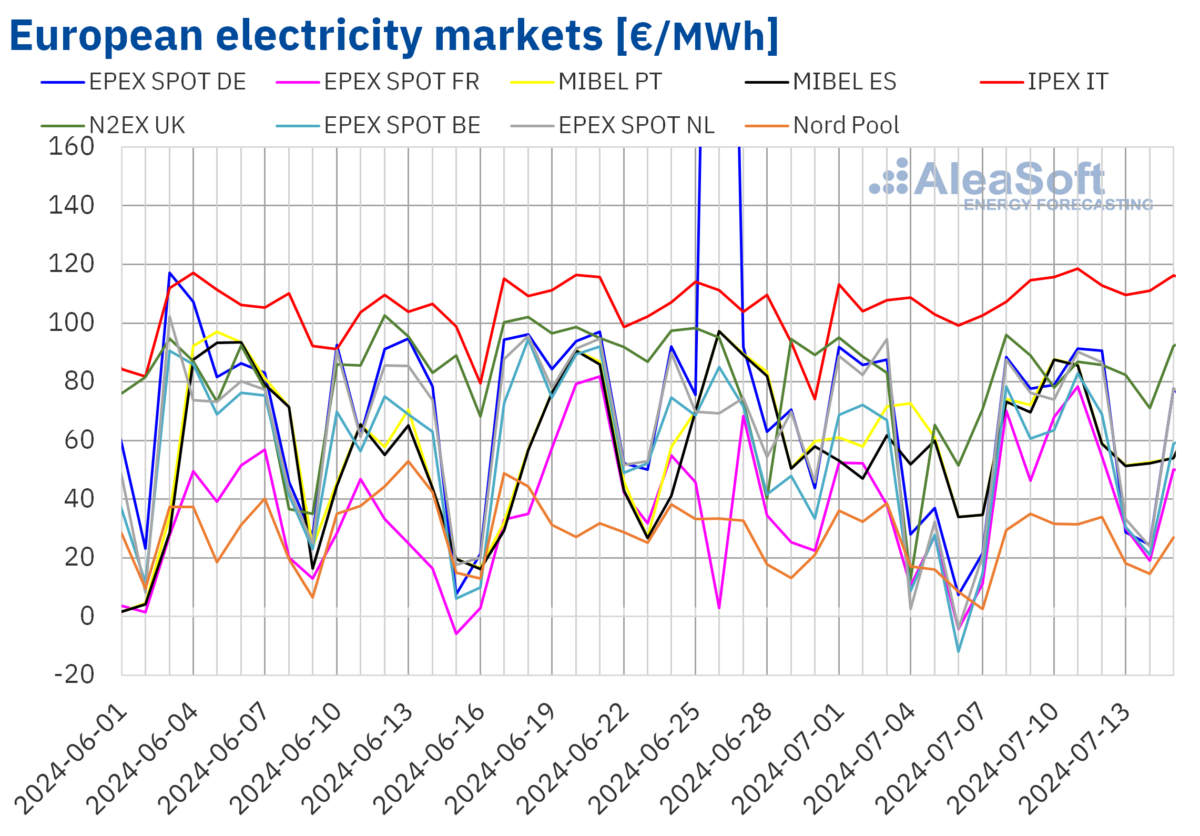Electricity prices increased in all major European markets in the second week of July, according to AleaSoft Energy Forecasting.
When compared to the week prior, the Italian market registered the smallest increase, of 7%, while the French market recorded the largest, at 95%. Weekly price increases were also registered in the Belgian, British, Dutch, German, Nordic, Portuguese and Spanish markets.
Weekly price averages were below €70 ($76.60)/MWh in all markets except the United Kingdom at €84.16/MWh and Italy at €112.83/MWh. The Nordic market registered the lowest average, at €27.79/MWh.
The British and Italian markets were the only two to not record negative electricity prices last week. The Belgian and French markets reached the lowest hourly price, at -€74.02/MWh on Sunday, July 14.
AleaSoft attributed the higher prices during the second week of July to a fall in wind energy production and increase in electricity demand across most markets. It predicts prices will fall slightly in most markets during the third week of July, influenced by a decrease in demand.
Last week saw solar energy production increase by 23% week on week in Germany, by 16% in France, 12% in Italy, 5.7% in Spain and 1.7% in Portugal.
Spain broke its historical record for daily photovoltaic production, recording 208 GWh on July 12, as did Portugal, when it reached 23 GWh on July 13. Meanwhile, France and Germany broke their records for the most solar energy produced on a day in July, registering 121 GWh on July 8 and 405 GWh on July 9 respectively.
AleaSoft is forecasting solar energy production to continue increasing in Germany during the third week of July, but decrease in Italy and Spain.
This content is protected by copyright and may not be reused. If you want to cooperate with us and would like to reuse some of our content, please contact: editors@pv-magazine.com.




2 comments
By submitting this form you agree to pv magazine using your data for the purposes of publishing your comment.
Your personal data will only be disclosed or otherwise transmitted to third parties for the purposes of spam filtering or if this is necessary for technical maintenance of the website. Any other transfer to third parties will not take place unless this is justified on the basis of applicable data protection regulations or if pv magazine is legally obliged to do so.
You may revoke this consent at any time with effect for the future, in which case your personal data will be deleted immediately. Otherwise, your data will be deleted if pv magazine has processed your request or the purpose of data storage is fulfilled.
Further information on data privacy can be found in our Data Protection Policy.